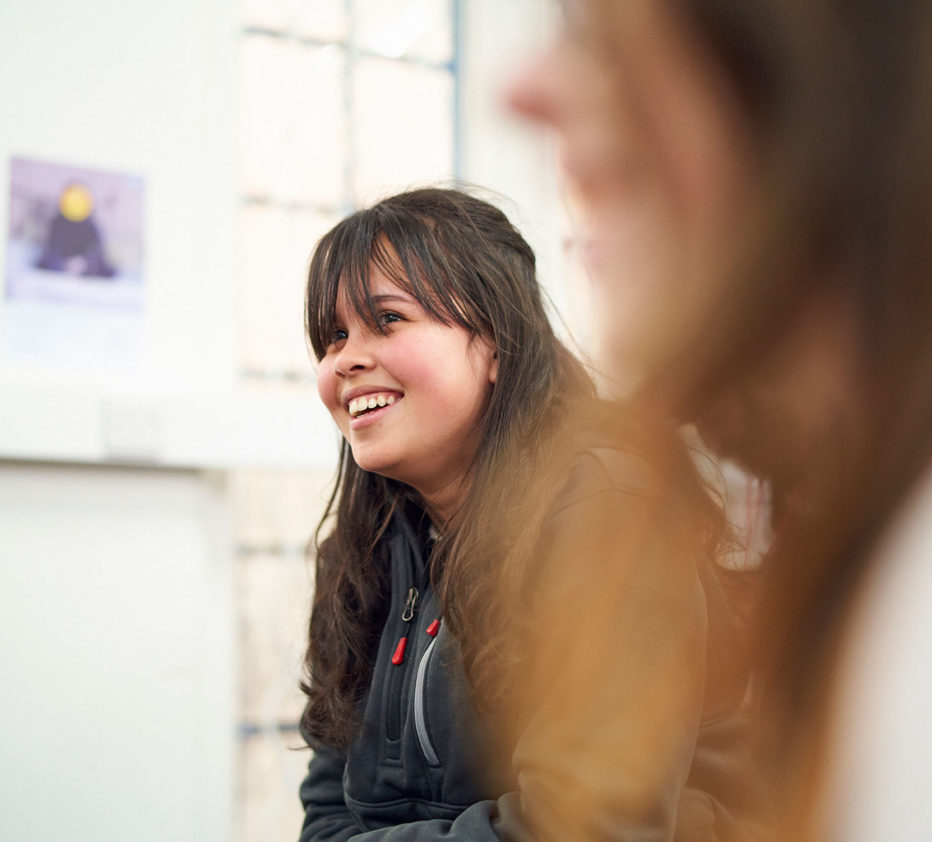Delve into the fascinating world of linguistics and elevate your mastery of the English language. This course offers an in-depth exploration of linguistic methods, including pragmatics, phonology, lexis, semantics, discourse, grammar, and graphology. These analytical tools will enable you to dissect and appreciate the nuances of language choices made by speakers and writers.
By honing these skills, you'll enhance your ability to deconstruct texts, uncovering layers of meaning and stylistic intricacies. This analytical prowess is invaluable, enriching your communication abilities and providing a strong foundation for careers in fields such as law, education, journalism, and more. Join a community of passionate language enthusiasts and take the next step towards a future where your command of English opens doors to diverse and rewarding opportunities.
You will need 5 GCSE's at grades 5-9, including English.
| Study level | Cost | Additional fees |
|---|---|---|
| 16-18 | Free | There are no costs charged to enable you to study this A-Level course. You will need to provide your own stationery and you will be given the opportunity to take part in trips and visits, which may incur a cost. |
You will be taught using a variety of styles and methods and will be encouraged to become involved in debate and discussion about the power of meaning and the skills writers use to put ideas across.
In a typical week you will be given a range of tasks to complete. However, the major form of assessment will involve writing essays. An overview of content you will study:
Language Variation (assessed via exam):
How language varies depending on mode, field, function and audience.
How language choices can create personal identities.
Language variation in English from c1550 (the beginnings of Early Modern English) to the present day.
Child Language (assessed via exam):
Spoken language acquisition and how children learn to write between the ages of 0 and 8.
The relationship between spoken language acquisition and literacy skills that children are taught, including the beginnings of reading.
Appropriate theories of children’s language development.
Investigating Language (assessed via exam):
You will select a research focus from five topic areas (Global English/Language and Gender Identity/Language and Journalism/Language and Power/Regional Language Variation)
You will develop your research and investigation skills.
Crafting Language (assessed via coursework):
You will demonstrate your skills as writers by crafting texts for different audiences and/or purposes
English and Maths are important life skills that will help you to achieve your best in your studies and progress to your dream career. If you have not already achieved grade 9-4 in GCSE Maths and/or English at school, we will support you to improve your skills.
Our A Level programmes allow you to choose multiple subjects, enabling you to study 3–4 A Levels over two years or combine them with equivalent vocational qualifications, with each subject taught for 4 hours and 30 minutes per week across three separate lessons and your timetable determined by your chosen subjects (provided at the start of the academic year).
Although you are not required to be on campus when you do not have a timetabled lesson, we strongly recommend making effective use of our learning facilities and resources during these periods to stay on top of your work.
What's the difference between GCSE and A Level English Language?
- GCSE English Language gives you the basics — you learn how writers use language in fiction and non-fiction, and you practise your own writing (like stories or persuasive pieces). You focus on spotting techniques and explaining effects.
- A Level English Language goes deeper — you study how language really works in everyday life. You explore things like how children learn to speak, how language changes over time, and how people use language based on their gender, age, or background. You also analyse real-world texts (like conversations, tweets, or adverts) and even carry out your own investigations.
In short:
GCSE teaches you to recognise language features.
A Level teaches you to understand and explain why people use language the way they do.
You will study 4 modules throughout this two-year course. Three of these are assessed with an examination at the end of your second year and the other is non-examined assessment (coursework).
The coursework aspect contributes 20% towards your overall grade, whereas the remaining 80% will be awarded from the results of your examinations.
Throughout Year 12 you will study:
- Language Variation (individual)
- Child Language
- Crafting Language (non-examined assessment practice)
Moving into Year 13 you will study:
- Crafting Language (non-examined assessment portfolio)
- Language Variation Over Time
- Investigating Language
Completing this course opens a multitude of pathways for both further education and diverse career prospects. Academically, it lays a robust foundation for university degrees in English, linguistics, journalism, law, and education. Professionally, the analytical and communication skills acquired are highly valued in fields such as publishing, media, public relations, and teaching. This qualification not only enhances your understanding of language but also equips you with versatile skills, making you a compelling candidate in various industries.
Find out everything you need to know about Sunderland College and our exciting range of courses!
Register for our next open event


Rated Outstanding in all areas by Ofsted
Ofsted, 2024

94% Overall pass rate for T Levels
2022-23

Top performing college group in the North East for student achievement
NARTS, 16-18 Students, 2024

We have International award winning Immersive Spaces at both Bede and City Campus